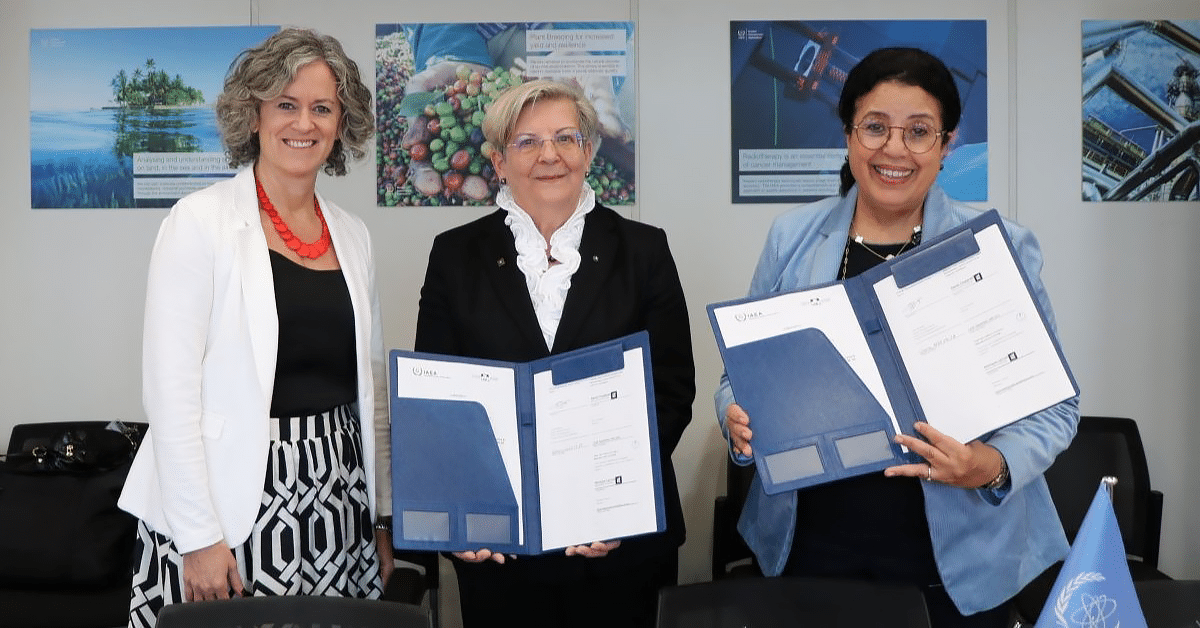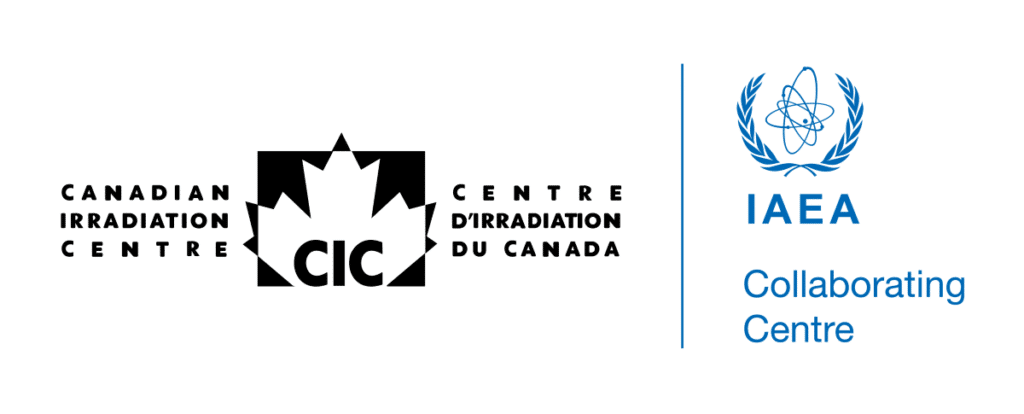- Awards and Distinctions
The Canadian Irradiation Centre (CIC), directed by Professor Monique Lacroix, has received international recognition.

Photo from left to right: Alison Grant, Canadian Ambassador to Austria and Permanent Representative to the International Organization in Vienna; Professor Monique Lacroix, Director of CIC; and Najat Mokhtar, Deputy Director General for Nuclear Science and Applications, IAEA. Photo credit: IAEA
On September 29, 2025, in Vienna, the International Atomic Energy Agency (IAEA) officially designated the Canadian Irradiation Centre (CIC) as an IAEA Collaborating Centre for the development of ionizing radiation treatments for the development of advanced biopolymers and combined treatments to ensure food safety. This designation, valid until 2029, crowns nearly forty years of fruitful collaboration between the CIC and the IAEA.
Le 29 septembre 2025, à Vienne, l’Agence internationale de l’énergie atomique (AIEA) a officiellement désigné le Centre d’irradiation du Canada (CIC) comme Centre collaborateur de l’AIEA pour le développement de traitements par rayonnement ionisants pour le développement de biopolymères avancés et de traitements combinés pour assurer la salubrité des aliments. Cette désignation, valable jusqu’en 2029, vient couronner près de quarante ans de collaboration fructueuse entre le CIC et l’AIEA.
A unique infrastructure in Canada
Created in 1987, the CIC is the only infrastructure of its kind in Canada. Its specialized laboratories (biochemistry, microbiology, virology, physical chemistry, chemistry, dosimetry, sensory evaluation) enable the development and promotion of irradiation treatment technologies and their applications in key sectors.

Research applied to major challenges
CIC’s work focuses on two main areas:
- Food safety: development of technologies to reduce losses and improve food safety, such as the combined use of irradiation and stabilized natural antimicrobial agents.
- Sustainable materials: valorization of biomass and industrial waste to create new reinforced biopolymers, nanomaterials, and biodegradable, bio-based, and bioactive packaging, contributing to the circular economy.
Recent projects include the development of active biodegradable packaging capable of extending food shelf life, as well as the irradiation of biomass materials to reduce plastic use and the study of microbial radioresistance and radiosensitization through combined treatments.
Scientific and international influence
The CIC has established itself as a leading international player: more than 34 projects in 11 countries, 21 scientific missions in Europe, Africa, Asia, the Caribbean, and Latin America, and the hosting of 34 researchers from 19 countries in collaboration with the IAEA. More than 100 international students and interns have been trained at the center, leading to more than 412 publications cited more than 26,300 times.
Recognition with an eye to the future
With this designation, the CIC will strengthen its contribution to the IAEA’s flagship programs, including Atoms4Food and NUTEC Plastics, by continuing its commitment to scientific innovation, training, and technology transfer.
This recognition not only illustrates the excellence of the work carried out by Professor Monique Lacroix and her team, but also confirms the unique role of the CIC and INRS in research applied to major societal challenges: ensuring food security, reducing plastic pollution, and supporting a circular economy.
